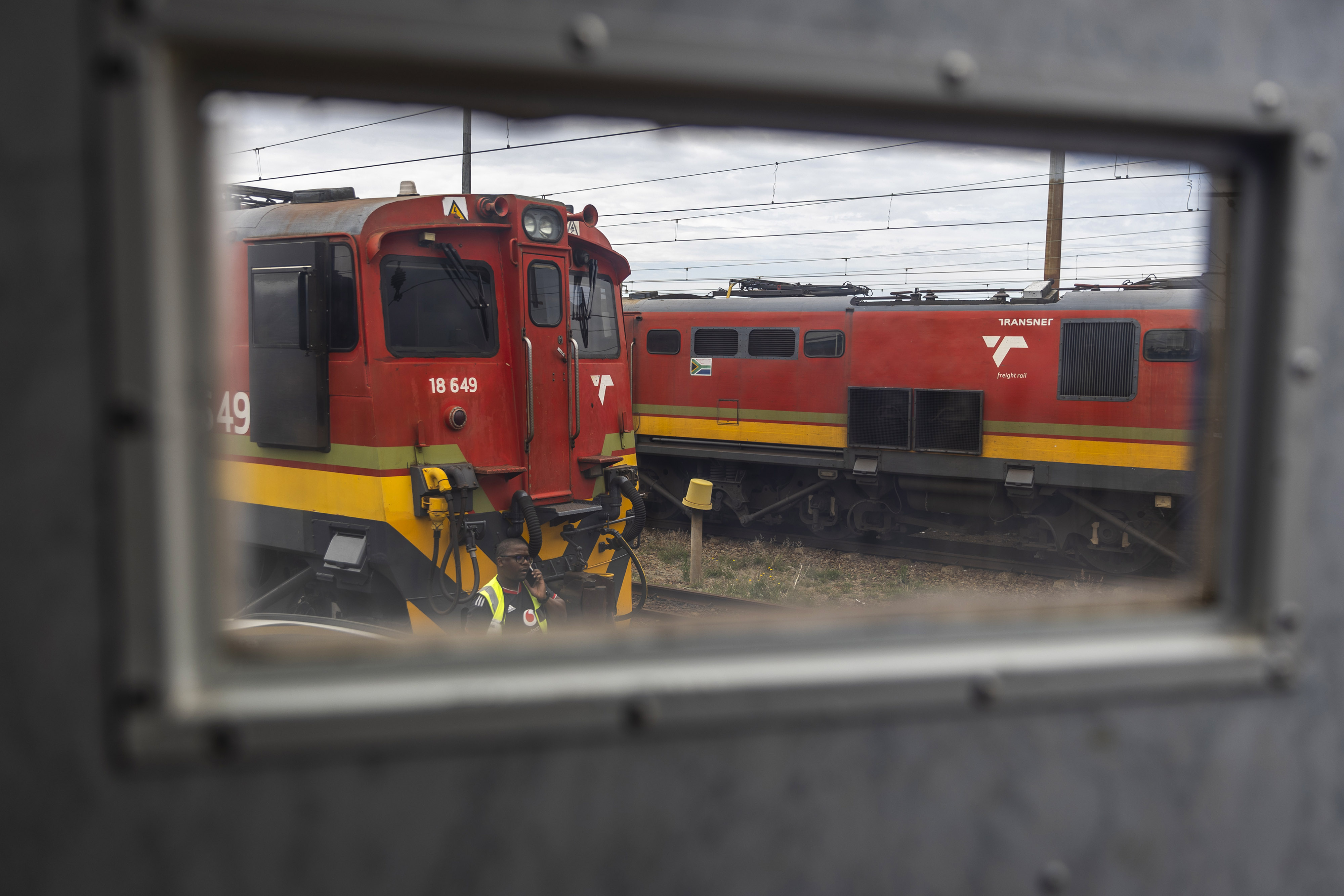How has Transnet got away with the façade, for many years, of being an efficient company?
I think the answer to this question might be Eskom, a peer of Transnet in the state-owned enterprise (SOE) universe. For many years, the public’s attention has been on Eskom, and rightfully so, while Transnet slipped under the radar as its crisis festered.
After all, people experience Eskom and its efficiencies every day. If you flick a switch and the lights don’t come on — as has been the case for 16 years with blackouts — you’re likely to think of Eskom and pay close attention to its goings-on. Whereas Transnet’s operations, while crucial for the economy, seem far removed from daily life.
Transnet, through its heavy haul locomotives, is responsible for ferrying most of the iron ore and coal that South Africa produces to countries around the world. Its role is bigger than this as it also carries freight, fuel, agricultural produce, and automotive parts around the country. When Transnet isn’t operating properly, South African business, the economy, and exports do not operate properly.
Transnet has become an Eskom, especially when having a cursory look at its financial and operational performance.
Failing infrastructure
Like Eskom, Transnet’s infrastructure is failing and increasingly subjected to criminal/vandalism elements. Transnet cannot fulfill its most basic function of railing goods to market on behalf of exporters and/or helping importers land their goods at the ports. Like Eskom, Transnet is simply not generating enough money to independently fund operations — especially maintenance. And like Eskom, Transnet is facing smothering debt that continues to rise and is at unsustainable levels.
Transnet’s debt situation is worrying, with the SOE’s borrowings sitting at R137.7-billion by the year ended March 2024, which is bigger than the R76.7-billion in revenue it generated during the same period.
Transnet is now in a vicious cycle of having to borrow more money to settle old debt and the high interest rates that it comes with. In the past year, Transnet had to raise R34.4-billion in new debt, only to use the proceeds to pay loans worth R31.3-billion that became due.
Transnet has constantly asked lenders for a reprieve on a big chunk of debt that becomes due to avoid a messy default. Taxpayers would be forced to rescue Transnet and be on the hook for its debt repayments because it is an SOE and most of its debt is guaranteed by the government.
Potential bankruptcy
To avoid this situation and potential bankruptcy, Transnet applied for new debt and used it to replace existing/outstanding debt while negotiating new repayment terms. Although this has bought Transnet more time to pay off debt at a later stage, the company will now face higher repayment costs on new debt, given that interest rates have risen dramatically over the past three years.
Debt and interest repayments (equating to about R1-billion every month), wipe out a chunk of the revenue that Transnet generates, putting it in a loss-making position, as seen when it reported a R7.3-billion financial loss.
Transnet has debt worth R40.6-billion to settle between the calendar years 2025 and 2026, with even bigger debt to settle after that. New discussions with lenders — including, among others, the China Development Bank, Deutsche Bank, Export Development Canada, JPMorganChase Bank, and Standard Bank — on more grace will start soon.
The counterargument for a high debt position is that logistics behemoths like Transnet require funding to keep their operations running and also undertake big capital projects like maintenance and infrastructure expansion. Except Transnet is not embarking on large maintenance and expansion of its infrastructure. Where Transnet is spending money is on replacing worn-out equipment and security measures to curb theft and vandalism to its rail network.
Scary calculation
Underscoring this is that Transnet only spent R2.7-billion in 2023 on maintenance, which increased a bit in 2024 to R3.47-billion. In its heyday, Transnet was spending more than R4-billion a year on maintenance. If maintenance spending had kept pace with inflation every year, the spending on maintenance would have returned to and even exceeded past levels, making Transnet reliable for its customers. A scary calculation by James Holley, the CEO of Traxtion Group (a railway operator), points to an underspending of R30-billion by Transnet on maintenance over the past 11 years. Meanwhile, over the same period, spending on salaries at Transnet increased by R5-billion.
The good news is that Transnet’s new management, led by CEO Michelle Phillips, is aware of the problems at the SOE. Phillips has asked help from the private sector to independently run trains and ports, and work is under way to free up money at Transnet by selling more than 8,000 properties it owns (including those at the iconic Carlton Centre precinct in Johannesburg). There are even talks of Transnet turning a profit of R1-billion in its 2024/25 financial year. DM





